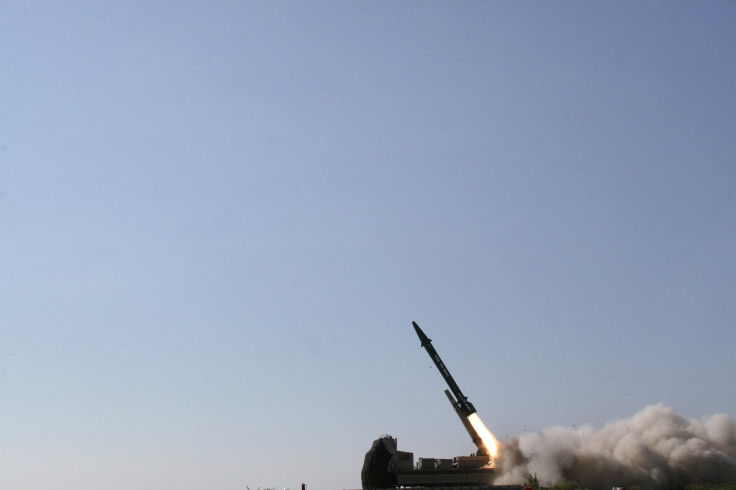Confidential U.N. Report Says Iran Is Pursuing Ballistic Missiles Against Sanctions

Days before nuclear talks between Tehran and six global powers were about to resume, a confidential U.N. report says Iran is pursuing ballistic missiles in violation of U.N. sanctions against the country.
The report threatened to derail plans to de-escalate sanctions and create a new, long-term nuclear plan between the U.N. and Iran. Iran agreed to not grow its nuclear program for six months in exchange for a lift of some sanctions.
U.N. Security Council Resolution 1929, passed in 2010, specifically bans Iran from “participating in activities related to ballistic missiles.” The U.N. fears Iran could use the ballistic missiles to deliver nuclear warheads.
Up until now, Iran has appeared to reduce activities barred by the U.N. agreement in hopes of lifting the economic burden the sanctions have had on the country. Iran and the 5+1 group (permanent members of the Security Council and Germany) were on track to make a long-term nuclear deal by the July 20 deadline.
The missile issue is a major point of contention. On Sunday, Iranian Supreme Leader Ayatollah Ali Khamenei called for the Revolutionary Guard to “mass produce” ballistic missiles, and he criticized the U.N. for the anti-ballistic sanctions.
“They [the U.N.] expect us to limit our missile program while they constantly threaten Iran with military actions,” Khamenei said. “So this is a stupid, idiotic expectation.”
Iran believes ballistic missiles should be left out of the nuclear sanctions conversation entirely. Iran insists its ballistic missile program is meant only for conventional warfare. An official told Reuters that its missile program gives Iran “an upper hand” in a contentious and violent Middle East.
Keeping an eye on Iran’s ballistic missiles isn’t easy. The U.N. report notes that differentiating between materials meant for Iran’s ballistic missile program and its space program is extremely difficult.
“Among the most important items Iran is reportedly seeking are metals as well as components for guidance systems and fuel,” the report said. “Similarities between Iran's ballistic missiles and space programs can make it difficult for states to distinguish the end-uses of procured items.”
The experts behind the report say Iran was building a new launch site and a complex near a space center designed to monitor space objects. Iran has successfully launched satellites since 2009 and claimed to launch and safely return a monkey to space last year, but experts are skeptical.
The nuclear talks are scheduled to resume next Wednesday.
“There are a range of complicated issues to address,” a senior U.S. official said. “And we do not know if Iran will be able to make the tough decisions they must to assure the world that they will not obtain a nuclear weapon and that their program is for entirely peaceful purposes.”
Iranian Foreign Minister Mohammad Javad Zarif told Iranian reporters that he and European Union foreign policy chief Catherine Ashton, who are leading the discussions, have cleared their schedules in the two weeks leading to July 20 in anticipation of intense negotiations. With the latest disclosures, they’ll need all the time they can get.
© Copyright IBTimes 2025. All rights reserved.






















